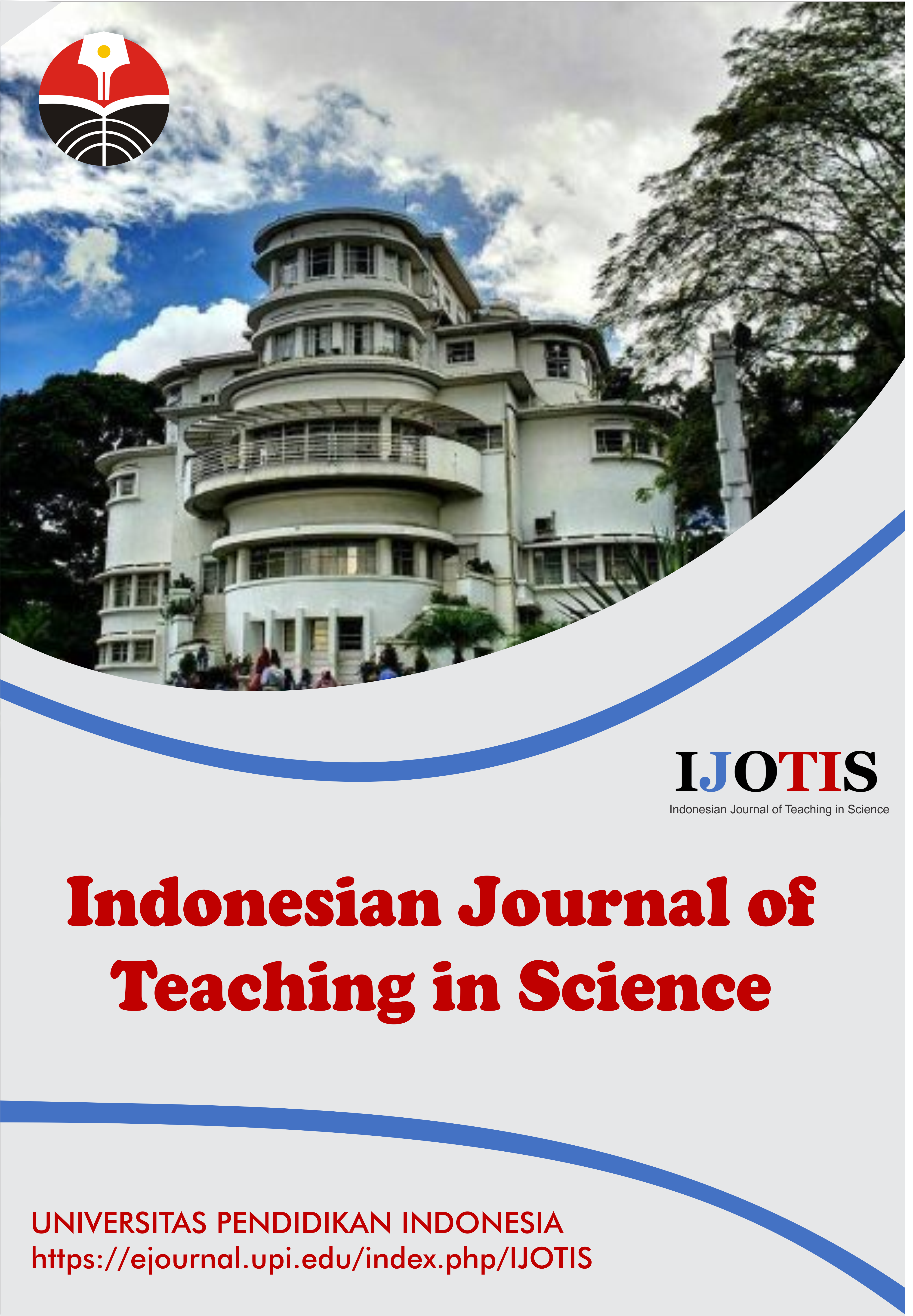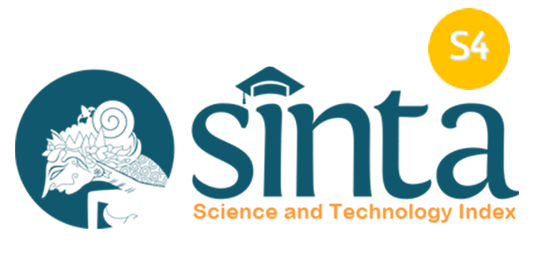Students’ Virtual Classroom Experiences in the Post-COVID-19 Era
Abstract
Keywords
Full Text:
PDFReferences
Abdulazeez, A. (2020). More preparedness on coronavirus disease 2019 (COVID-19) in Nigeria. Pan African Life Science, 4, 200–203.
Adebakin, A. B., Ajadi, O. T., and Subair, S. O. (2015): Required and possessed university graduate employability skills: Perceptions of the Nigerian employers. World Journal of Education, 5(2), 115-121.
Adebakin, A. B., Aliyu, O. M. and Ayanlowo, A. E. (2021). COVID-19 pandemic and higher education in Nigeria: The reality and a call for sustainable digitalization. International Journal of Research in Education and Psychology, 7(4), 19-33.
Adeola, K. A. and Mabayoje, L. O. (2021). COVID-19 and university governance. International Journal of Antimicrobiology Agents, 21(2), 727 - 732.
Ajadi, O. T. and Adebakin, A. B. (2022). Lecturers’ readiness for virtual teaching in southwestern Nigerian universities. UNESWA Journal of Education, 5(1), 68-82.
Akinyemi, K. O., Fakorede, C. O., Anjorin, A. Abegunrin, O. A., Ajoseh, S. O. and Akinkumi, F. M. (2020). Intrigues and challenges associated with COVID-19 pandemic in Nigeria. Journal of Mental Health, 12(8), 76–82.
Bolarinwa, O. A. and Atunwa, E. B. (2021). A review of coronavirus disease 2019 cases in Africa. Asian Pacific Journal, 13, 199 – 206.
Caputo, A. (2017). Social desirability bias in self-reported wellbeing measures: evidence from an online survey. Universitas Psychologica, 16(2), 1-13.
Davis, N. L., Gough, M. and Taylor, L. L. (2019). Online teaching: Advantages, obstacles and tools for getting it right. Journal of Teaching in Travel and Tourism, 19(3), 256–263.
Deborah, J. (2020). Perception of undergraduate students on the impact of COVID-19 pandemic on higher institutions development in Federal Capital Territory, Abuja, Nigeria. Electronic Research Journal of Social Sciences, 2(3), 65–79.
Dumford, A. D. and Miller, A. L. ((2018). Online learning in higher education: Exploring advantages and disadvantages for engagement. Journal of Computing in Higher Education, 30(3), 452–465.
Fasanmi, S. A. and Adebakin, A. B. (2023). The reality of COVID-19 in Nigerian higher institutions: New normal in classroom management. Ife Journal of Educational Management and Policy Analysis, 3(1), 116-131.
Fleming, T. (2008). A secure bas for adult learning. Attachment theory and adult education. The adult learner. The Journal of Adult and Community Education in Ireland, 25, 33-53.
Gamage, K. A. A., de Silva, E. K. and Gunawardhana, N. (2020). Online delivery and assessment during COVID-19: Safeguarding Academic Integrity. Education Science, 10, 301.
Gottfried, P. (2010). Evaluating the relationship between students’ attendance and achievement in urban elementary and middle schools. An instrumental variables approach. American Journal of Educational Research, 47(2), 434–465.
Henderson, M., Selwyn, N. and Aston, R. (2017). What works and why? Student perceptions of ‘useful’ digital technology in university teaching and learning. Journal of Study Higher Education, 42(8), 1567–1579.
Khlaif, Z. N., Salha, S. and Kouraichi, B. (2021). Emergency remote learning during COVID-19 crisis: Students’ engagement. Education. Information Technology, 2(2), 1–23.
Nambiar, D. (2020). The impact of online learning during COVID-19: Students’ and teachers’ perspectives. International Journal of Indian Psychology, 8(2), 783–793.
Oghuvbu, E. P. (2010). Attendance and academic performance of students in secondary schools. A correlational approach. Studies on Home and Community Science, 4(1), 21 – 25.
Ogunode, N. J. and Abubakar, M. (2021). University education in Nigeria. Challenges and way forward. Electronic Research Journal of Social Sciences, 3(2), 94 – 106.
Oladipo, A. T., Fashola, O. T., Agboola, E. I., Adisa, O. O., Oyekanmi, O. A., and Akinsete, A. M. (2020). Challenges of medical education in Nigeria in the COVID-19 era. Pan African Medical Journal, 37, 223 -231.
Peimani, N. and Kamalipour, H. (2021). Online education and the COVID-19 outbreak: A case study of online teaching during lockdown. Education Science, 11, 72 – 81
Prensky, M. (2017). Digital natives, digital immigrants part 1. Journal of New Horizon, 9, 1–6.
Roby, D. E (2021). Research on school attendance and students achievement. A study of Ohio schools. Education Research Quarterly, 28(1), 3 -16.
Sekiwu, D., Ssempala, F., and Frances, N. (2020). Investigating the relationship between school attendance and academic performance in universal primary education. The case of Uganda. African Educational Research Journal, 8(2), 152 – 160.
Tick, A. (2019). An extended TAM model for evaluating e-Learning acceptance, digital learning and smart tool usage. Acta Polytechnica Hungariae, 16, 213–233.
Watermeyer, R., Crick, T., Knight, C. and Goodall, J. (2021). COVID-19 and digital disruption in UK universities: Afflictions and affordances of emergency online migration. Higher Education, 81, 623–641.
Watson, D. M. (2011). Pedagogy before technology: Re-thinking the relationship between ICT and teaching. Journal of Education Information Technology, 6, 251–266.
Wright, F., White, D., Hirst, T. and Cann, A. (2014). Visitors and residents: Mapping student attitudes to academic use of social networks. Learning Media Technology, 39, 126–141.
Zhou, J. and Zhang, Q. (2021). A survey study on U.S. college students’ learning experience in COVID-19. Education Science, 11, 248 – 257.
DOI: https://doi.org/10.17509/ijotis.v5i1.82906
Refbacks
- There are currently no refbacks.
Copyright (c) 2025 Universitas Pendidikan Indonesia

This work is licensed under a Creative Commons Attribution-ShareAlike 4.0 International License.
Indonesian Journal of Teaching in Science (IJoTIS) is published by Universitas Pendidikan Indonesia (UPI)
 Indonesian Journal of Teaching in Science
Indonesian Journal of Teaching in Science



